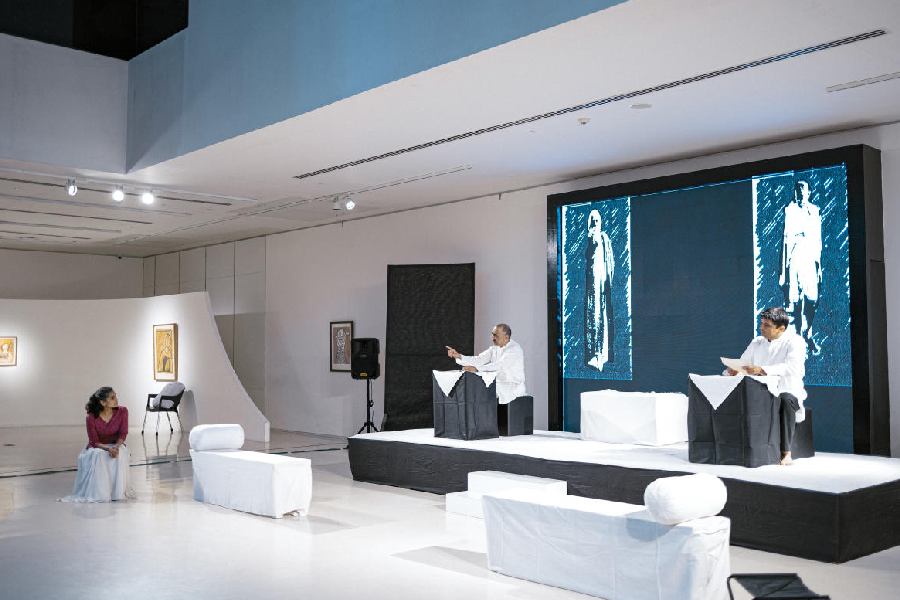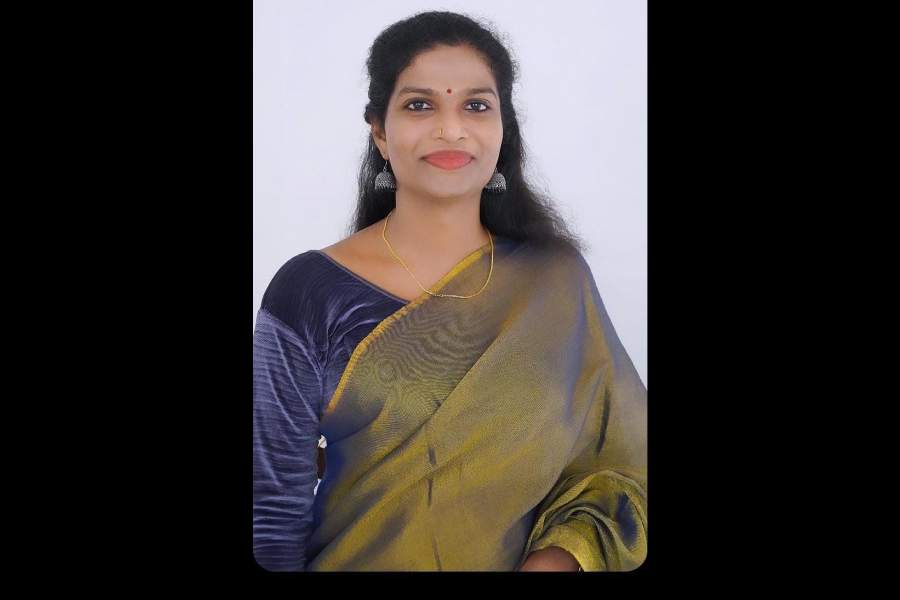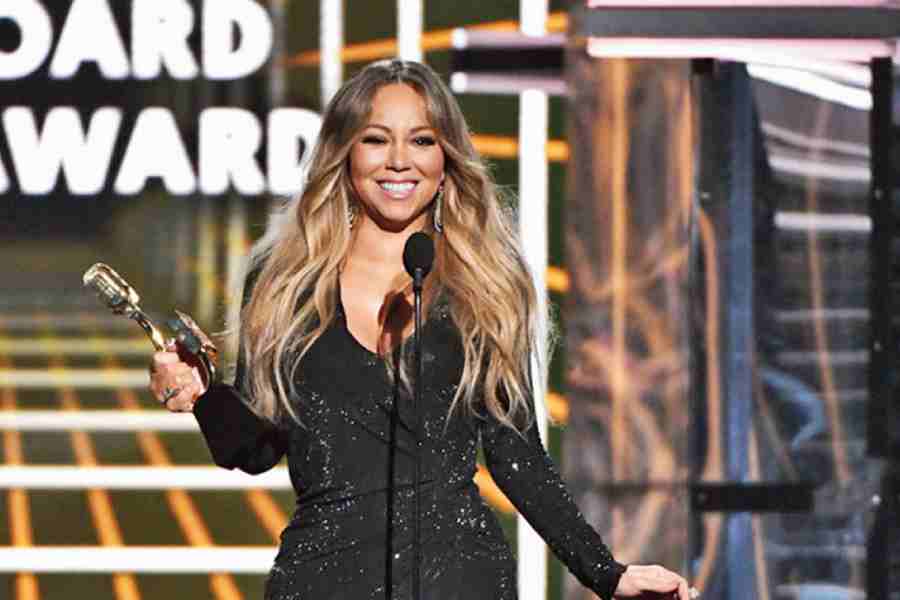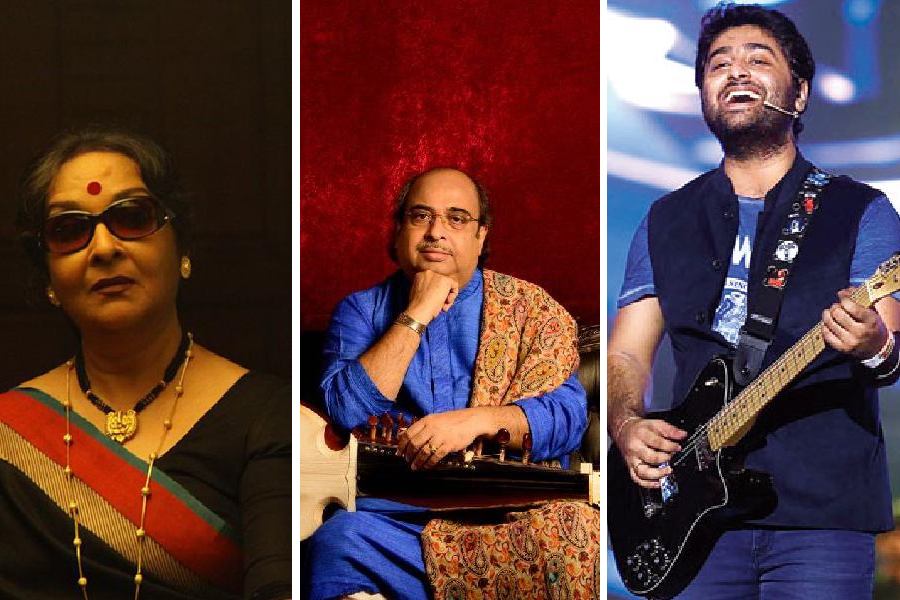The Kolkata Centre for Creativity’s amphitheatre is a small and intimate space. As one walks in, a question arises: will the space be grand enough to depict the lives of two giants of twentieth-century public life in India? Bangalore Little Theatre pulls it off commendably. The Prophet and The Poet lacks a certain polish perhaps; it is devoid of that rare magnificence in drama that can bring tears to one’s eyes or lift them off their seats, but as a self-evident example of documentary theatre it successfully acquaints the audience with the philosophical vicissitudes inherent in the process of nation-building.
The epistolary exchanges between the Mahatma and Gurudev are presented as back-and-forth verbal dialogue, with Naveen Tater inhabiting the role of Mohandas K. Gandhi and Karan Singh playing Rabindranath Tagore. Neither actor had any makeup on to make them look remotely like either statesman — a deliberate choice to maintain universality in BLT’s performances irrespective of the venue which Vijay Padaki, the performing group’s founder and celebrated thespian, explains later. Both actors deliver their respective speeches in spotless English. Minti Jain is the narrator linking the two perspectives. Minimalism is the mantra in stage design, as the focus remains on the relationship between Tagore and Gandhi. But for all of the lofty erudition on display, the prioritisation of the oral praxis almost transforms it into a dull, declamatory exercise. Fortunately, the source material — research on the Gandhi-Tagore debate conducted by Shailesh Parekh and Sabyasachi Bhattacharya — is vibrant enough to stave off boredom.
Robi’s Garden, an original composition based on Tagore’s shorter pieces, ‘riddle plays’ and sketches — it comprised the second part of the evening — is a far more engaging performance. Be it in the presentation of the story of the invention of shoes in King Hobu’s kingdom, or the cautionary tales of how doctors can be dangerous to one’s health, Padaki and Jain knock it out of the park, familiarising the audience with the need to keep one’s imagination alive using Tagore’s writings as the instrument.











